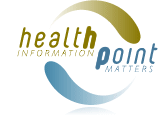- Programme Areas
Mental health
- Programme Type
Refugee / migrant
- Regions
East Auckland,
South Auckland,
North Auckland,
West Auckland,
Central Auckland
- Age Groups
Child / Tamariki,
Youth / Rangatahi,
Adult / Pakeke,
Older adult / Kaumātua
- Referral Types
Self referral,
GP,
DHB clinical services
Referral Process
Criteria for Eligibility
Adults, children and families from refugee backgrounds who experience mental health related issues.
The Mobile Team provides refugees with high accessibility to quality, culturally-responsive specialist mental health and support services to assist positive resettlement throughout metropolitan Auckland. Operating via hybrid eco-vehicles, the team moves around on a circuit and delivers services directly into communities such as Mt Roskill, Glen Innes, Beachhaven and North Shore, Manukau, and Henderson.
The Mobile Team is a multidisciplinary specialist unit comprising psychologists, psychiatrists, doctor, nurse, social worker and six refugee community link workers representing the Afghan, Burmese, Somali, Iraqi, Ethiopian, Sudanese, and Kurdish communities. The Mobile Team travels into refugee communities for maximum accessibility and provides mental health services in assessment, intervention, counselling, social work, body therapies and a range of culturally responsive clinical therapies for trauma, family, and resettlement issues.
Description
RASNZ is the lead mental health agency for all incoming United Nations quota refugees entering New Zealand. Under international humanitarian conventions, the RAS Clinical Team additionally delivers specialist mental health services for convention refugees and asylum seekers either in detention or with cases before the Refugee Appeals Authority.
Based at the Māngere Refugee Reception Centre, the multidisciplinary team brings together the combined specialist skills of a group of clinical psychologists, nurses, psychiatrists, physiotherapists, occupational and body work therapists, plus 90 interpreters and cross-cultural workers to assess and treat refugees who have experienced trauma or torture. The effects of post traumatic stress disorder are only one dimension of experience for many refugees from diverse cultural and linguistic backgrounds. Others often experience grief, depression, anxiety and complex mental health issues which may sometimes be related to physical and medical problems such as head or body injury. Intakes of between 130 - 150 refugees arrive from all over the world every eight weeks. The mission of the Māngere Clinical Team is to deliver comprehensive assessment, initial treatment, orientation, and resettlement planning input.
Refugees are referred by UNHCR, INZ, Red Cross, or AUT, and we work very closely with Public Health Services on the unique Māngere one-stop-shop campus and, particularly with Refugee Services Aotearoa NZ in resettlement planning and follow-up. Between 40% - 50% of incoming refugees are settled in Auckland. RASNZ provides referral and specialist clinical consultation follow-up to DHB and PHO mainstream community health services across the country where refugees are settled.
